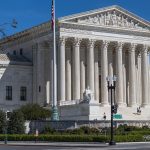An “Advisory on the Healing Effects of Social Connection and Community” was recently issued by US Surgeon General Vivek Murthy. The advisory highlights the issue of loneliness and isolation in the US, and warns of the negative impact it can have on public health. The Surgeon General’s office also discovered the positive impact of social connections and created a website to provide further information.
The @Surgeon_General just put out the most obvious advisory of all time: isolation is bad for you.
Pretty rich coming from a lockdown proponent. Thanks for using my taxes to report on an outcome everyone with a lick of sense predicted all along, guy.https://t.co/NNoiyqiFPU
— Hannah Cox (@HannahDCox) May 5, 2023
The website contains insights such as comparing social connections to a garden, where nurturing them can improve overall health. The key takeaways from the advisory include the fact that humans are wired for social connection, but have become more isolated over time. Additionally, social connection significantly improves the health and wellbeing of individuals, and is vital to community health and success. The advisory concludes by urging everyone to work together to improve social connections and enhance the nation’s public health.
NEW: Today, I released a Surgeon General's Advisory on the epidemic of loneliness and isolation facing our country, the destructive impacts it has on our collective health, and the extraordinary healing power of our relationships. https://t.co/P9RnZkLr6G #Connect2Heal 1/8 pic.twitter.com/ZhaSuXTjoi
— Dr. Vivek Murthy, U.S. Surgeon General (@Surgeon_General) May 2, 2023
Says one of the government health officials who insisted that we stay isolated from family, friends, and virtually any human connection for months, even years. Some of us, using nothing but common sense, predicted this human collateral damage that you refer to as an “epidemic of… https://t.co/8aHl3MScwg
— Matt Kibbe (@mkibbe) May 3, 2023
Loneliness is a significant societal issue, yet it is also a natural part of the human experience. People are often raised with the expectation of never feeling lonely, leading them to develop negative habits and behaviors to avoid it, rather than learning to accept it and make the most of their alone time. This mental conditioning can have negative effects on one’s health.
The absence of social connections can raise the risk of various health problems, including heart disease, anxiety, high blood pressure, dementia, depression, and diabetes. In fact, it can even lead to premature death, at levels comparable to that of someone who smokes a pack of cigarettes a day.
The recent “Advisory on the Healing Effects of Social Connection and Community” by the US Surgeon General has shed light on the health risks associated with loneliness and isolation. However, some are concerned about the recommendations made by Murthy to address this issue. These recommendations include requiring online companies to be transparent with their data, increasing public health surveillance and interventions, adopting a “Connection-In-All-Policies” approach for lawmaking, developing a national research agenda, accelerating research funding, and having more conversations on social connection in schools, workplaces, and communities. Some view these suggestions as an attempt to expand government power and resources under the guise of caring about our well-being.
While it’s crucial to acknowledge the health risks linked to loneliness and isolation, it’s equally vital to understand that government intervention may not be the solution. Instead, we must be mindful of our interactions with others and explore ways to establish meaningful relationships with those around us. Relying on government officials to solve our social problems or provide us with genuine connections is not the answer.




